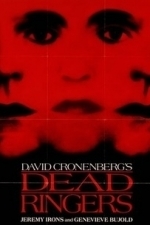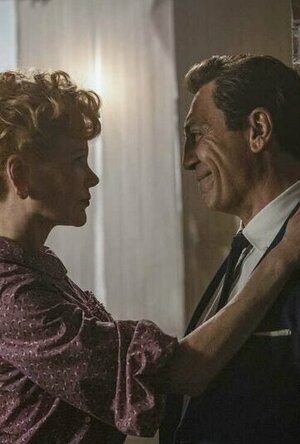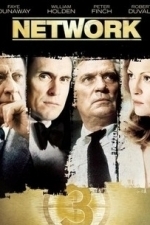Search
Search results
Matthew Krueger (10051 KP) rated Dead Ringers (1988) in Movies
Sep 15, 2020 (Updated Sep 15, 2020)
Whats The Difference Between Us
Dead Ringers- is a decent movie, its the last movie david cronenberg did in the 80's. So his 80's streak ending on a low ball/a dispointment. I really liked Jeremy Irons he was really good. And the psychological espect was good as well. Other than that it was a okay movie.
The Plot: Elliot (Jeremy Irons), a successful gynecologist, works at the same practice as his identical twin, Beverly (also Irons). Elliot is attracted to many of his patients and has affairs with them. When he inevitably loses interest, he will give the woman over to Beverly, the meeker of the two, without the woman knowing the difference. Beverly falls hard for one of the patients, Claire (Geneviève Bujold), but when she inadvertently deceives him, he slips into a state of madness.
In his DVD commentary, Irons claims that Robert De Niro declined playing the Mantles due to his unease with the subject matter and portraying gynecologists, while William Hurt decided to reject the parts because "it is hard enough to play one role".
Irons was given two different dressing rooms with two sets of costumes for playing his two characters. However, given the fact that he said "the whole point of the story is you should sometimes be confused as to which is which", he chose to use only one of the rooms and combine different costume items intended for different characters. Irons also developed an "internal way" to portray each character, employing the Alexander technique for "different energy points", giving each character his own appearance.
Like i said before the psychological espect is good in this. Jeremy Irons was excellent. I wouldnt really recordmend this film, rather davids other 80's films instead.
The Plot: Elliot (Jeremy Irons), a successful gynecologist, works at the same practice as his identical twin, Beverly (also Irons). Elliot is attracted to many of his patients and has affairs with them. When he inevitably loses interest, he will give the woman over to Beverly, the meeker of the two, without the woman knowing the difference. Beverly falls hard for one of the patients, Claire (Geneviève Bujold), but when she inadvertently deceives him, he slips into a state of madness.
In his DVD commentary, Irons claims that Robert De Niro declined playing the Mantles due to his unease with the subject matter and portraying gynecologists, while William Hurt decided to reject the parts because "it is hard enough to play one role".
Irons was given two different dressing rooms with two sets of costumes for playing his two characters. However, given the fact that he said "the whole point of the story is you should sometimes be confused as to which is which", he chose to use only one of the rooms and combine different costume items intended for different characters. Irons also developed an "internal way" to portray each character, employing the Alexander technique for "different energy points", giving each character his own appearance.
Like i said before the psychological espect is good in this. Jeremy Irons was excellent. I wouldnt really recordmend this film, rather davids other 80's films instead.
BankofMarquis (1832 KP) rated BEING THE RICARDOS (2021) in Movies
Jan 14, 2022
Superb "A" plot, Boring "B" plot
When I first heard that Nicole Kidman (of all people) was set to play Lucille Ball in a bio-pic (of sorts), I was suspect over the casting.
Darned if she doesn’t pull it off.
Written and Directed by Aaron Sorkin, BEING THE RICARDOS isn’t, exactly, a bio-pic of Lucy, but rather it tells the tale of a pivotal week in the life of Lucy and her husband Desi Arnaz (Javier Bardem) as Lucy deals with infidelity issues with Desi and accusations of being a Communist from the House UnAmerican activities committee all while trying to put on her weekly TV show. Oh…and it also shows, in flashback, Lucy and Desi’s courtship.
This is a lot to pack-in in one film and this movie almost manages to do it well.
Let’s start with the performances. Kidman is excellent as Lucy - especially as she recreates the Lucille Ball we know on-screen. She has the pattern and physicality of the TV star down and recreates Lucy’s TV personae well. Kidman also digs deeply into her considerable acting talent to pull out the “business” Lucy, showing a determined woman driving her way through a “man’s world”.
JK Simmons is brilliant, as always, as William Frawley (who played Fred Mertz in I LOVE LUCY). Sorkin has written Frawley as the “all knowing” mystic of the piece, hanging into the background, but coming to fore when one of the principal characters needs a bit of sage advice. It’s an old trope, but Simmons pulls it off well.
Unfortunately, the Desi Arnaz and Vivian Vance (who played Ethel) character’s are underwritten by Sorkin. Nina Arianda is well cast as Ethel, but she just doesn’t have much to do (besides being a foil for Lucy - which was what Vance was for many, many years). I’d love to see a version of this film where Arianda is giving something more meaty, I think she’d tear into it.
And then there is Javier Bardem’s portrayal of Desi Arnaz. It is an underwritten part and Bardem plays the surface of this character and just doesn’t get “deep enough” into the soul of this man, so Desi really ended up a throw away character in this.
It was good to see, however, some “veteran” performers (Linda Lavin, Ronny Cox and John Rubenstein) playing older versions of characters involved in the activities in this film, reminiscing (and commenting on) the events. It was a nice framing touch and added some depth to the film.
The praise for the good parts of this film (and there are plenty) and the blame for the bad (boring/underwritten) parts of this film (and there are plenty) all lie at the feet of Writer/Director Sorkin. It is as if he had a really good idea (showing Lucy under pressure by the House Un-American Committee while battling the Corporate Suits - and Directors/Writers/Producers who are not as in touch with Lucy’s Comedy as she is - while trying to put on a weekly show), but it wasn’t quite enough to fill a complete movie, so he added a “B” plot of Desi’s philandering (which is true to what really occurred) and flashbacks to how they met.
The first part works very well (clearly, this was the part that Sorkin was interested in) while the 2nd part feels “put on” (Sorkin “banging it out” to fill the film).
This film is worth watching, I just wish there was more “A” plot and less “B” plot.
Letter Grade: B
7 stars (out of 10) and you can take that to the Bank(ofMarquis)
Darned if she doesn’t pull it off.
Written and Directed by Aaron Sorkin, BEING THE RICARDOS isn’t, exactly, a bio-pic of Lucy, but rather it tells the tale of a pivotal week in the life of Lucy and her husband Desi Arnaz (Javier Bardem) as Lucy deals with infidelity issues with Desi and accusations of being a Communist from the House UnAmerican activities committee all while trying to put on her weekly TV show. Oh…and it also shows, in flashback, Lucy and Desi’s courtship.
This is a lot to pack-in in one film and this movie almost manages to do it well.
Let’s start with the performances. Kidman is excellent as Lucy - especially as she recreates the Lucille Ball we know on-screen. She has the pattern and physicality of the TV star down and recreates Lucy’s TV personae well. Kidman also digs deeply into her considerable acting talent to pull out the “business” Lucy, showing a determined woman driving her way through a “man’s world”.
JK Simmons is brilliant, as always, as William Frawley (who played Fred Mertz in I LOVE LUCY). Sorkin has written Frawley as the “all knowing” mystic of the piece, hanging into the background, but coming to fore when one of the principal characters needs a bit of sage advice. It’s an old trope, but Simmons pulls it off well.
Unfortunately, the Desi Arnaz and Vivian Vance (who played Ethel) character’s are underwritten by Sorkin. Nina Arianda is well cast as Ethel, but she just doesn’t have much to do (besides being a foil for Lucy - which was what Vance was for many, many years). I’d love to see a version of this film where Arianda is giving something more meaty, I think she’d tear into it.
And then there is Javier Bardem’s portrayal of Desi Arnaz. It is an underwritten part and Bardem plays the surface of this character and just doesn’t get “deep enough” into the soul of this man, so Desi really ended up a throw away character in this.
It was good to see, however, some “veteran” performers (Linda Lavin, Ronny Cox and John Rubenstein) playing older versions of characters involved in the activities in this film, reminiscing (and commenting on) the events. It was a nice framing touch and added some depth to the film.
The praise for the good parts of this film (and there are plenty) and the blame for the bad (boring/underwritten) parts of this film (and there are plenty) all lie at the feet of Writer/Director Sorkin. It is as if he had a really good idea (showing Lucy under pressure by the House Un-American Committee while battling the Corporate Suits - and Directors/Writers/Producers who are not as in touch with Lucy’s Comedy as she is - while trying to put on a weekly show), but it wasn’t quite enough to fill a complete movie, so he added a “B” plot of Desi’s philandering (which is true to what really occurred) and flashbacks to how they met.
The first part works very well (clearly, this was the part that Sorkin was interested in) while the 2nd part feels “put on” (Sorkin “banging it out” to fill the film).
This film is worth watching, I just wish there was more “A” plot and less “B” plot.
Letter Grade: B
7 stars (out of 10) and you can take that to the Bank(ofMarquis)
RəX Regent (349 KP) rated Network (1976) in Movies
Feb 19, 2019
“I’m mad as hell and I’m not gonna take it anymore!”
…the lasting legacy of Peter Finch’s rants, which began with a breakdown and became the ratings winner in the 1970’s Network driven news media. This is of course, fiction but the commentary on the changing and more corporate driven American media industry of the the time is not without merit.
Smartly scripted, on the ball cynicism and yet harking back to the rose tinted nostalgia common with American media movies in whcih the industry was supposedly filled with Walter Cronkites,
the notion that American press was once beyond reproach is clearly a fallacy, in contrast, the notion that American news media was becoming so ratings driven that the news gave way to outlandish editorialism, is not.
Howard Beale (Finch) has an on air breakdown and whilst his best friend and producer, Max Schumacher (William Holden) tries to pull him from the air waves, allowing him to bow out with some dignity, the new wave of corporate management lead by CEO Frank Hackett (Robert Duval) and Holden’s replacement and eventual lover, Diana, (Faye Dunaway), have other ideas.
She sees an opportunity in the ratings spike gained by Beale’s rants which speak to the peoples growing frustrations and takes advantage, only driven by ratings.
Though the screenplay and performances are nothing less than brilliant, there are two core problems with this movie.
The first being that it is too long. The plot seems to be dragged out and repetitive as we approach the almost inevitable conclusion and the second is the level of preaching. But this is a symptom of the first, opening with a good argument, with old school journalism versus the TV generation and as the film goes on, the arguments need to escalate but since this was covered in the first half an hour, the points become laboured and over started.
The notion that the TV generation is shallow and amoral is put at odds with the middle aged newspaper reader, where time and decency are standard. This is a point which I refuse to accept since some of the 20th centuries most amoral acts where committed either before 1936, the birth of television and in the first couple of decades there after, by the very generation whcih is being held up as the moral standard here.
large_network_blu-ray_3The press has always had its paymasters, always had to sell newspapers and whilst the medium and methods may have changed, this does feel like sour grapes by the end. Criticising the characters motivations is one thing, but this film seems to imply that the modern world of television is making sociopaths of us all, dumbing us down and numbing our emotions to the point of accepting nothing but pure spectacle.
In many ways this is true but is also a very flawed argument and comes across as bunch old men crying into there Scotch in some dimly lit bar, in a way not too dissimilar to the print or broadcast media of today, hitting out at the blogging and twitter generation.
The ending was amusing though with the quote “This was the story of Howard Beale, the only known case of a man killed because of poor ratings”.
Very droll.
Smartly scripted, on the ball cynicism and yet harking back to the rose tinted nostalgia common with American media movies in whcih the industry was supposedly filled with Walter Cronkites,
the notion that American press was once beyond reproach is clearly a fallacy, in contrast, the notion that American news media was becoming so ratings driven that the news gave way to outlandish editorialism, is not.
Howard Beale (Finch) has an on air breakdown and whilst his best friend and producer, Max Schumacher (William Holden) tries to pull him from the air waves, allowing him to bow out with some dignity, the new wave of corporate management lead by CEO Frank Hackett (Robert Duval) and Holden’s replacement and eventual lover, Diana, (Faye Dunaway), have other ideas.
She sees an opportunity in the ratings spike gained by Beale’s rants which speak to the peoples growing frustrations and takes advantage, only driven by ratings.
Though the screenplay and performances are nothing less than brilliant, there are two core problems with this movie.
The first being that it is too long. The plot seems to be dragged out and repetitive as we approach the almost inevitable conclusion and the second is the level of preaching. But this is a symptom of the first, opening with a good argument, with old school journalism versus the TV generation and as the film goes on, the arguments need to escalate but since this was covered in the first half an hour, the points become laboured and over started.
The notion that the TV generation is shallow and amoral is put at odds with the middle aged newspaper reader, where time and decency are standard. This is a point which I refuse to accept since some of the 20th centuries most amoral acts where committed either before 1936, the birth of television and in the first couple of decades there after, by the very generation whcih is being held up as the moral standard here.
large_network_blu-ray_3The press has always had its paymasters, always had to sell newspapers and whilst the medium and methods may have changed, this does feel like sour grapes by the end. Criticising the characters motivations is one thing, but this film seems to imply that the modern world of television is making sociopaths of us all, dumbing us down and numbing our emotions to the point of accepting nothing but pure spectacle.
In many ways this is true but is also a very flawed argument and comes across as bunch old men crying into there Scotch in some dimly lit bar, in a way not too dissimilar to the print or broadcast media of today, hitting out at the blogging and twitter generation.
The ending was amusing though with the quote “This was the story of Howard Beale, the only known case of a man killed because of poor ratings”.
Very droll.


